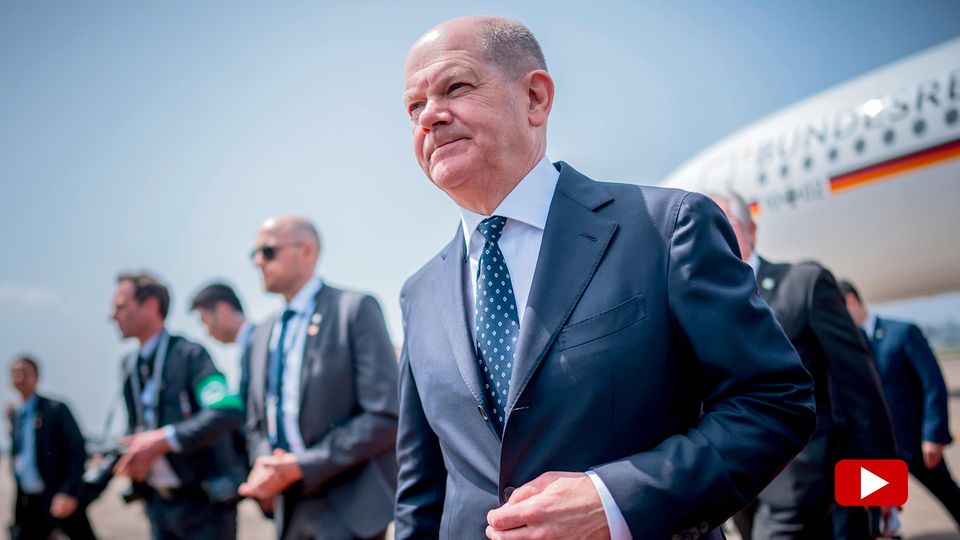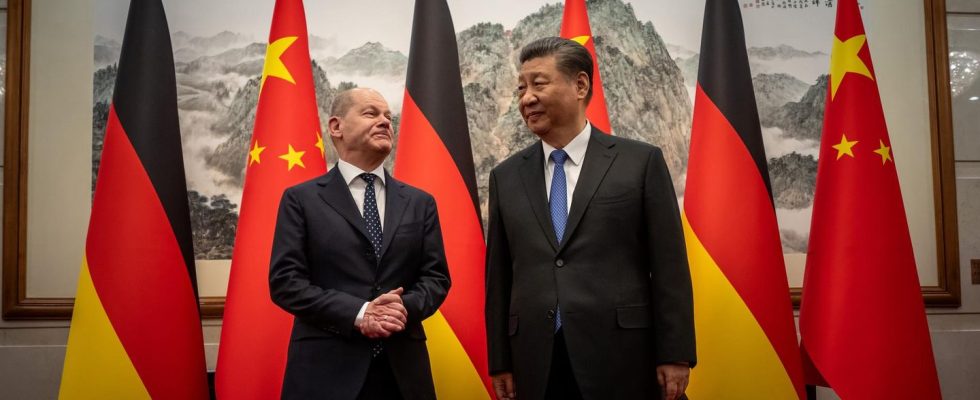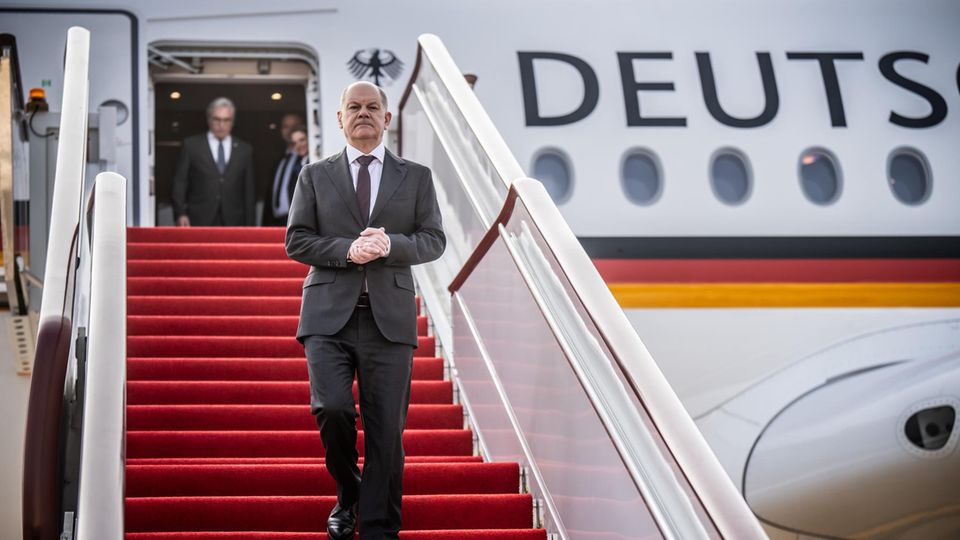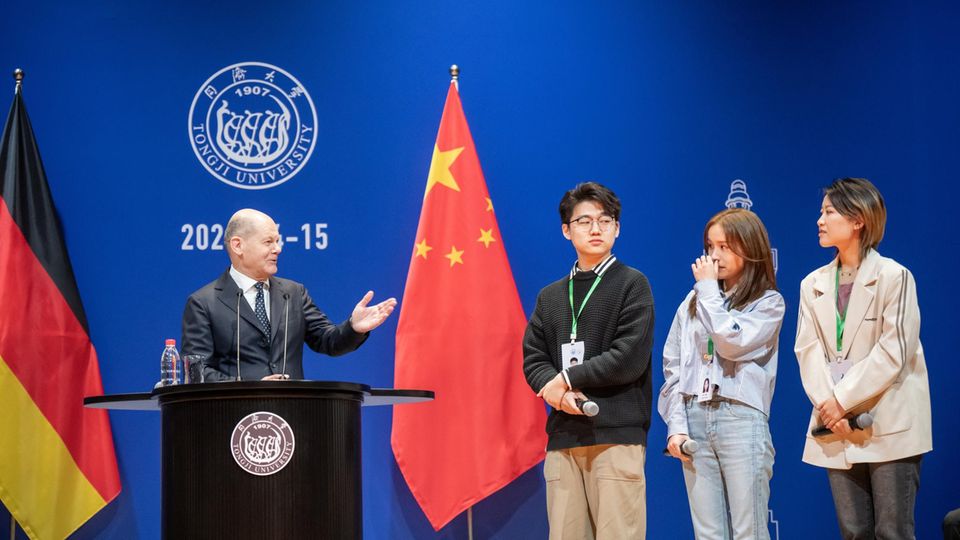It’s good that Olaf Scholz traveled to China. However, there wasn’t much to be gained there. About a partly sobering trip.
He took his time. Xi Jingping sat with his guest from Germany for a good three hours, 45 minutes in private, lunch, a larger group. The length of political discussions rarely says anything about how successful they were, but the fact that the Chinese did not compliment the Chancellor immediately after shaking hands is a good sign. In these times you never know.
But what remains of this journey? What does the balance look like?
People in the Chancellor’s camp are somewhat satisfied, but that is about as surprising as the discovery that Tuesday comes after Monday. On the subject of Ukraine, Xi appeared to be more open than before and more willing to talk. The Chinese are now using the word peace and they are committed to adhering to the United Nations Charter. The message here is that you still have to emphasize this in writing these days.
Seen in light, it was a sobering visit in parts, also when it came to the future of Ukraine. After the conversation with Xi, a sentence was circulated that the president is said to have said to a larger audience. All countries must have a place at the table, none of them should be “on the menu”.

Scholz meets Xi: Why there isn’t much to gain for the Chancellor in Beijing
01:39 min
Some on the German side saw this as evidence that China might soon be able to put a stop to its ally Russia. According to the interpretation, Xi could only have meant the fate of Ukraine with the sentence. Who else, pray tell, is about to be eaten?
The Chinese want to talk to Olaf Scholz – nothing more
It is fitting for the difficult journey that Xi’s quote can be interpreted either way. Can’t the sentence also be understood as a warning against leaving Russia out of attempts to resolve the war diplomatically?
In a way, the Chancellor has himself to blame for the fact that people look for concrete successes in discussions as if it were a needle in a haystack. The last time he was in Beijing, in November 2022, he celebrated getting a warning from Xi about the use of nuclear weapons as a major diplomatic success. Such a clear result is missing this time. The president and his people even avoided the question of whether China would take part in the peace conference that Switzerland would like to host in mid-June.
After the meeting between Scholz and Xi, the Chinese Foreign Ministry said they were happy to talk about it in a “positive” way. Motto: Do your planning. We’ll then see how it fits.
For Ukraine, this is the first bitter realization of this trip, nothing is likely to change any time soon. China enjoys its key role almost to the point of pain. From a political perspective, this is understandable. The war weakens Europe, divides the American Congress and makes Russia even more dependent on Beijing. And when it comes to the global economy, the consequences of the war have long been priced into it. From Xi’s point of view, there isn’t much to be said for changing the status quickly.
By the way: China’s economy shot up by around five percent in the first quarter. Li Qiang, the Prime Minister, did not forget to mention this message during an appearance with Scholz. Subtext: So, Olaf – things are working for us.
Suddenly the Prime Minister lectures the Chancellor
Finding number two: China, to put it carefully, does not want to be talked into anything. Not in security policy, and certainly not in economic policy. Roughly put, the Chancellor is bothered by the following in the latter area: China subsidizes some companies in the areas of cars or renewable energies so much that they produce too much – and throw their goods onto the European market at cheap prices.
In his conversation with Li Qiang, the Chancellor openly expressed his concerns about Chinese overcapacity. The Prime Minister apparently disliked this so much that when they appeared together, he gave a speech that sounded as if he had not grown up in the Communist Party, but was a student of Friedrich August von Hayek.
Li Qiang said he wanted to draw attention to the theory of supply and demand. Please see the matter “from the market’s perspective”. Some companies even went bankrupt. Industrial subsidies are common practice everywhere and, incidentally, it would be better to talk about how to intensify free trade. “Let us exchange gifts and light one candle from another light,” said Li Qiang, of all people, quoting the German philosopher Gottfried Wilhelm Leibniz. Scholz smiled painedly.
The federal government’s China strategy has also apparently been read carefully in Beijing and found to be irritating. In any case, it seemed as if Scholz had to work hard to assure the Chinese that they did not want to decouple from China under any circumstances. The Chancellor emphasized that it is about further developing cooperation “in all dimensions”. It didn’t sound like he was taking his own government’s restrictive strategy particularly seriously. Judging by how some company managers talked about trade with China during the trip, he still seemed like risk awareness personified.
The company bosses seem almost blind to risk
Among the ranks of corporate bosses – insight number three – you have to look long and hard to find someone who takes the dangers of closer economic integration at least remotely seriously. Trade should flourish and the EU should just refrain from raising tariffs in order to defend itself against the flood of cheap products. That’s the tenor.
“De-risking”? Gladly. But not by restricting trade with China out of fear of death. And what if the People’s Republic annexed Taiwan in the near future and the Americans imposed sanctions that would directly or indirectly affect their companies? The idea doesn’t seem to really bother anyone.
One almost thinks that German corporations are once again relying on taxpayers to bail them out in case of doubt. But this willingness is decreasing. Politically, socially. This can be said with all caution.
So is such a trip wrong? No not at all. Basically not, because it makes sense in times like these to keep checking whether, despite all the differences, there are areas of common interests. And from Scholz’s point of view, such a trip is the right thing to do anyway, as he seems like a chancellor who cares. Who fights for peace, for German interests. And about better access for German products.
A declaration of intent was signed late in the afternoon. New rules for the export of fresh German apples to China were agreed upon.



